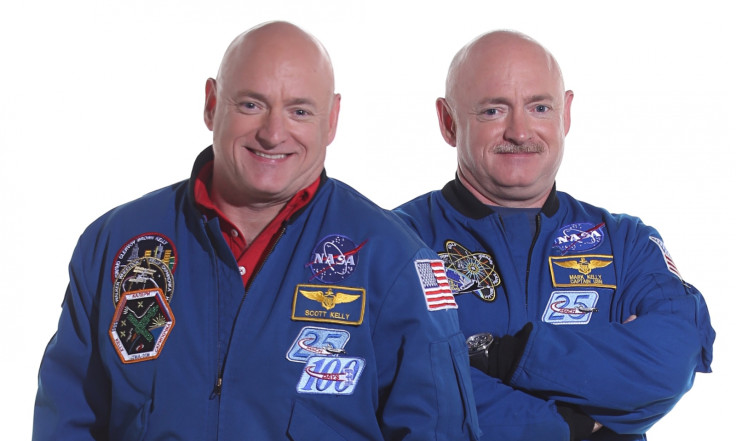Nasa Twins Study: 5 key differences between Scott and Mark Kelly after a year in space
Preliminary results show long-duration space travel has several major effects on the human body.
Initial results from Nasa's Twins Study have been announced with several key findings showing the impact of long-duration spaceflight on the human body.
Twin brothers Scott and Mark Kelly are identical Nasa astronauts. This provided the space agency with a unique opportunity to look at how space travel changes the body. One twin, Scott, was sent to live on board the International Space Station for a year (the longest duration for any person in a single stint), while the other, Mark, remained on Earth.
Both were monitored before, during and after Scott's return to Earth in March last year. Preliminary results of the study were announce at Nasa's Human Research Program's annual Investigators' Workshop in Texas. Here are five of the key findings.
Telomeres lengthening
One of the biggest findings of the mission was that Scott's telomeres got longer while in space. Telomeres are at the end of chromosomes and over time, as the body ages, they get shorter. Scott's telomeres at the ends of chromosomes in his white blood cells increased. Nasa said this could be to do with increased exercise and lower calorie intake while he was in space. When he got back to Earth, Scott's telomeres began to shorten again.
Bone formation
Researchers showed Scott experienced a reduction in bone formation in the second six months of the mission. This is not necessarily a huge surprise as microgravity disrupts the normal process of bone formation – for every one month in space, an astronaut will lose around 1.5% of bone mass. Researchers also found Scott experienced an increase in a hormone related to bone and muscle health. Nasa said this was "likely impacted by heavy exercise countermeasures during flight".
Cognitive decline

For this study, scientists looked at the difference in cognitive decline between a six-month space mission and a 12-month one. After one year, they found a slight decrease in speed and accuracy after the mission had ended. "Overall, however, the data does not support a relevant change in cognitive performance inflight by increasing the mission duration from six to 12 months," Nasa said.
Increased IPA metabolite on Earth
Mark was found to have an increased presence of 3-indolepropionic (IPA), a metabolite produced by gut bacteria that is currently being investigated as a potential brain antioxidant. It also helps maintain normal insulin activity and regulate blood sugar after meals. Scientists also found there were differences in Scott's gut bacteria from when he was on Earth compared to when he was in space.
Space gene?
Researchers looked at the DNA and RNA in both Scott and Mark's white blood cells. Findings showed both had hundreds of unique mutations in their genome, with around 200,000 RNA molecules expressed differently between them. The next step will be to examine these differences more closely "to see if a 'space gene' could have been activated while Scott was in space."
© Copyright IBTimes 2024. All rights reserved.






